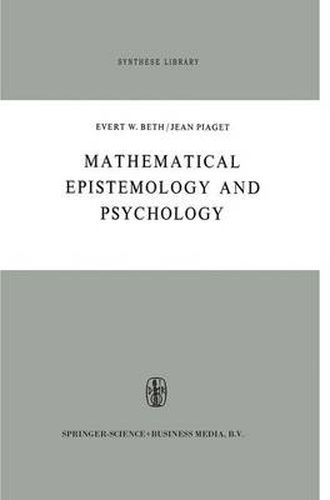Readings Newsletter
Become a Readings Member to make your shopping experience even easier.
Sign in or sign up for free!
You’re not far away from qualifying for FREE standard shipping within Australia
You’ve qualified for FREE standard shipping within Australia
The cart is loading…






This title is printed to order. This book may have been self-published. If so, we cannot guarantee the quality of the content. In the main most books will have gone through the editing process however some may not. We therefore suggest that you be aware of this before ordering this book. If in doubt check either the author or publisher’s details as we are unable to accept any returns unless they are faulty. Please contact us if you have any questions.
One of the controversial philosophical issues of recent years has been the question of the nature of logical and mathematical entities. Platonist or linguistic modes of explanation have become fashionable, whilst abstrac tionist and constructionist theories have ceased to be so. Beth and Piaget approach this problem in their book from two somewhat different points of view. Beth’s approach is largely historico-critical, although he discusses the nature of heuristic thinking in mathematics, whilst that of Piaget is psycho-genetic. The major purpose of this introduction is to summarise some of the main points of their respective arguments. In the first part of this book Beth makes a detailed study of the history of philosophical thinking about mathematics, and draws our attention to the important role played by the Aristotelian methodology of the demon strative sciences. This, he tells us, is characterised by three postulates: (a) deductivity, (b) self-evidence, and © reality. The last postulate asserts that the primitive notions of a demonstrative science must have reference to a domain of real entities in order to have significance. On the Aristote lian view discursive reasoning plays a major role in mathematics, whilst pure intuition plays a somewhat subordinate one.
$9.00 standard shipping within Australia
FREE standard shipping within Australia for orders over $100.00
Express & International shipping calculated at checkout
This title is printed to order. This book may have been self-published. If so, we cannot guarantee the quality of the content. In the main most books will have gone through the editing process however some may not. We therefore suggest that you be aware of this before ordering this book. If in doubt check either the author or publisher’s details as we are unable to accept any returns unless they are faulty. Please contact us if you have any questions.
One of the controversial philosophical issues of recent years has been the question of the nature of logical and mathematical entities. Platonist or linguistic modes of explanation have become fashionable, whilst abstrac tionist and constructionist theories have ceased to be so. Beth and Piaget approach this problem in their book from two somewhat different points of view. Beth’s approach is largely historico-critical, although he discusses the nature of heuristic thinking in mathematics, whilst that of Piaget is psycho-genetic. The major purpose of this introduction is to summarise some of the main points of their respective arguments. In the first part of this book Beth makes a detailed study of the history of philosophical thinking about mathematics, and draws our attention to the important role played by the Aristotelian methodology of the demon strative sciences. This, he tells us, is characterised by three postulates: (a) deductivity, (b) self-evidence, and © reality. The last postulate asserts that the primitive notions of a demonstrative science must have reference to a domain of real entities in order to have significance. On the Aristote lian view discursive reasoning plays a major role in mathematics, whilst pure intuition plays a somewhat subordinate one.